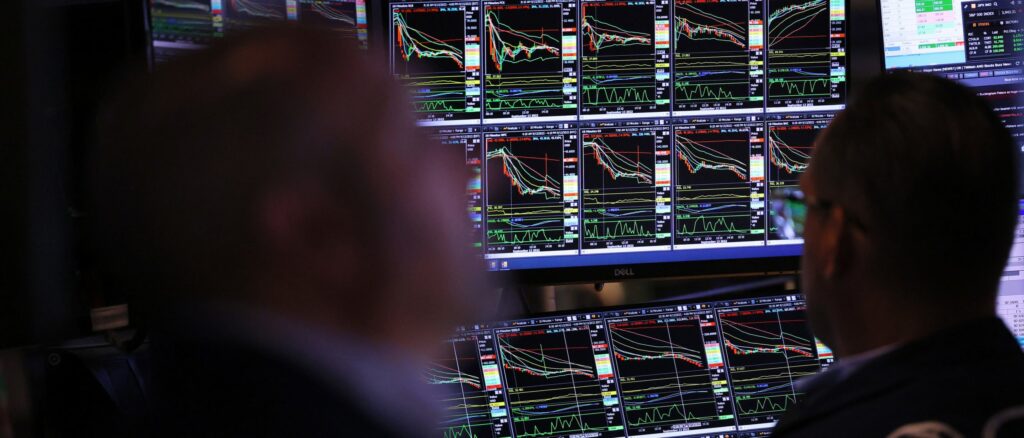Major U.S. stock indexes finished the day with huge losses as a disappointing jobs report released Friday stokes fears of an economic slowdown.
The Dow Jones Industrial Average dropped 2.60% on Monday, down over 1,000 points, with the S&P 500 and the Nasdaq falling 3.00% and 3.43%, respectively, according to Yahoo Finance. The rapid drop follows the July jobs report from the Bureau of Labor Statistics (BLS) that showed the unemployment rate rising to 4.3%, and the U.S. adding just 114,000 jobs, significantly less than the 175,000 jobs economists anticipated. (RELATED: US Economy Resembling ‘A Temp Agency’ As Latest Data Shows Hundreds Of Thousands More Americans Are Working Part-Time)
The S&P’s Monday loss is the worsts had since late 2022, according The Associated Press.
Asia-Pacific stocks also plummeted Monday, with Japan’s Nikkei 225 stock index closing down 12.40%, its largest one-day fall since Black Monday in 1987, according to CNBC. Meanwhile, South Korean index Kospi dropped 8.77%, falling so quickly that trading was temporarily halted to curb the selloff, according to financial services company Morningstar.
BREAKING: Japan’s stock market, the Nikkei 225, is currently set to post its largest 2-day drop in history.
This is an even larger drop than the Black Monday crash of 1987, per Zerohedge.
Now, South Korea has halted ALL sell orders as markets crash.
Panic selling has arrived. pic.twitter.com/eoxEeaxIh8
— The Kobeissi Letter (@KobeissiLetter) August 5, 2024
The jobs numbers heightened investor fears of a slowdown in the U.S. economy, which would mean rising unemployment, slowing wage growth and declining Gross Domestic Product. The unemployment data also raised concerns the Federal Reserve may be waiting too long to cut interest rates after it decided to keep its federal funds rate target range between 5.25% and 5.50% at the Federal Open Market Committee (FOMC) meeting on Wednesday, marking the eighth meeting in a row where the FOMC has chosen not to adjust the rate, according to The Wall Street Journal.
Economists have warned about a potential recession following Friday’s lackluster jobs report.
The Fed has maintained the elevated federal funds rate in an effort to combat high inflation, which has remained stubbornly above its target of 2%. Prices have risen more than 20% since President Joe Biden took office in January 2021. High interest rates increase the cost of borrowing and reduce purchasing power for consumers and businesses alike.
“All of the [labor] data points point to the direction we want to see,” Federal Reserve Chairman Jerome Powell said at a press conference Wednesday announcing the FOMC’s decision to not cut rates.
All content created by the Daily Caller News Foundation, an independent and nonpartisan newswire service, is available without charge to any legitimate news publisher that can provide a large audience. All republished articles must include our logo, our reporter’s byline and their DCNF affiliation. For any questions about our guidelines or partnering with us, please contact licensing@dailycallernewsfoundation.org.


